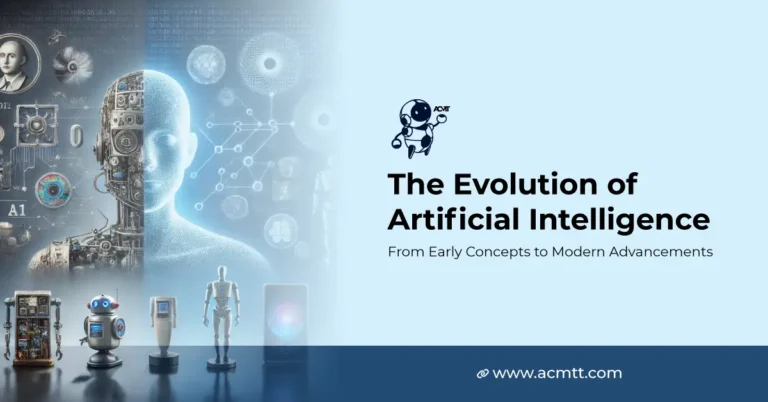Introduction Artificial Intelligence (AI) has transformed from a conceptual framework into a cornerstone of modern technology, influencing various aspects of daily life, industry, and academia. This article delves into the history of AI, tracing its development from early theoretical concepts to contemporary advancements. Early Foundations The foundations of AI can be traced back to classical […]
History of AI - Artificial Cognition and Machine Technology Today
The History of AI traces the evolution of artificial intelligence from its conceptual origins to its modern advancements. The term "artificial intelligence" was coined in 1956 at the Dartmouth Conference, where early pioneers like John McCarthy and Marvin Minsky began exploring machine learning and problem-solving. In the 1960s and 1970s, the field experienced significant developments with programs like ELIZA, which simulated conversation, and SHRDLU, which could understand natural language commands. However, enthusiasm waned during the "AI winter" of the 1980s due to limited computational power and unrealistic expectations. The resurgence of interest in the 1990s was fueled by advances in machine learning, increased data availability, and improved algorithms, leading to breakthroughs in applications such as speech recognition and computer vision. The 2010s saw a significant leap forward with deep learning and neural networks, enabling AI to achieve remarkable successes in diverse fields, from healthcare to autonomous vehicles. Today, AI continues to evolve rapidly, driven by advancements in hardware, big data, and innovative algorithms, raising new ethical and societal considerations.
